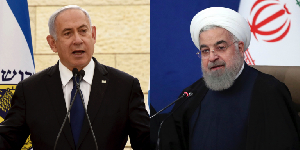The Economic Community of West Africa has conducted a training programme for Nigerian women, aimed at providing them with the essential skills necessary for engaging in successful intra-African trade.
The event, with the theme “Capacity Building for the Federation of Businesswomen West Africa on Access to Regional and Continental Market under the trade regime”, was held recently in Lagos.
In her welcome speech, the President of The Ecowas Federation of Businesswomen and Entrepreneurs, Alaba Lawson, said, “The primary objective of this event is to ensure the inclusion of women from the ECOWAS region in the African Continental Free Trade Area, facilitating the smooth movement of our goods. “It is imperative that we collaboratively address any challenges that arise and strategically position ourselves ahead of other regions in terms of AFCFTA participation.”
Also, the Trade and Private Sector Adviser at Deutsche Gesellschaft fur Internationale Zusammenarbeit, Raymond Dagana, said, “The Trade Facilitation West Africa Programme’s objective is to boost seamless regional and global trade by reducing time and cost barriers. It collaborates extensively with stakeholders to simplify trade registration and documentation processes, ensuring efficient movement of goods.”
In his keynote address, the President of the Lagos Chamber of Commerce and Industry, Wale Cole, noted that the AFCFTA is the world’s largest free trade area, bringing together 55 countries of the African Union and its regional economic communities.
According to him, the overall mandate of the AFCFTA is to create a single continental market with a population of 1.3 billion people and with a combined Gross Domestic Product of approximately $.34tn.
Cole said, “This agreement would not work unless Africans are very committed to it. Countries outside Africa that have seen us dependent on them and have also seen us as those feeding them with their economies will not want this agreement to work.”
Meanwhile, he appreciated the African leaders who initiated the trade agreement.
He emphasised that commitment was important to achieve success.
Cole added that external nations may not support it fully as it would lessen dependency.
He pointed out active regional and continental trade agreements, underscoring the need to also inform the private sector.
“Understanding these complex trade deals is crucial before moving goods. The Continental Trade Agreement provides guidance,” he explained.
According to him, trade benefits businesses and governments, with the United Unions Conference estimating a potential GDP increase of $116.1bn from full AFCFTA implementation, positively impacting livelihoods in participating nations.
Cole stated that female-led businesses struggle with regional trade, which was why the LCCI had been sharing information and hosting workshops to improve access to markets.
“This a commitment that all of us must have and see that we get this ACFTFA contract agreement to work in the interest of Africans so that these trillions of US dollars we hope to be making trade between African countries can work, otherwise Europeans, Americans will do their best to see that it does not work but we Africans must stand together,” the LCCI president asserted.
He further stated that the agreement would eliminate trade barriers and boost trade within Africa, focusing on value-added sectors.
“AFCFTA aims to create regional value chains, attract investments, and stimulate job creation.
“Successful implementation could enhance Africa’s competitiveness, fostering local empowerment and economic growth. This is a mission Africans must deliver to Africa,” he added.
Business News of Wednesday, 16 August 2023
Source: punchng.com













